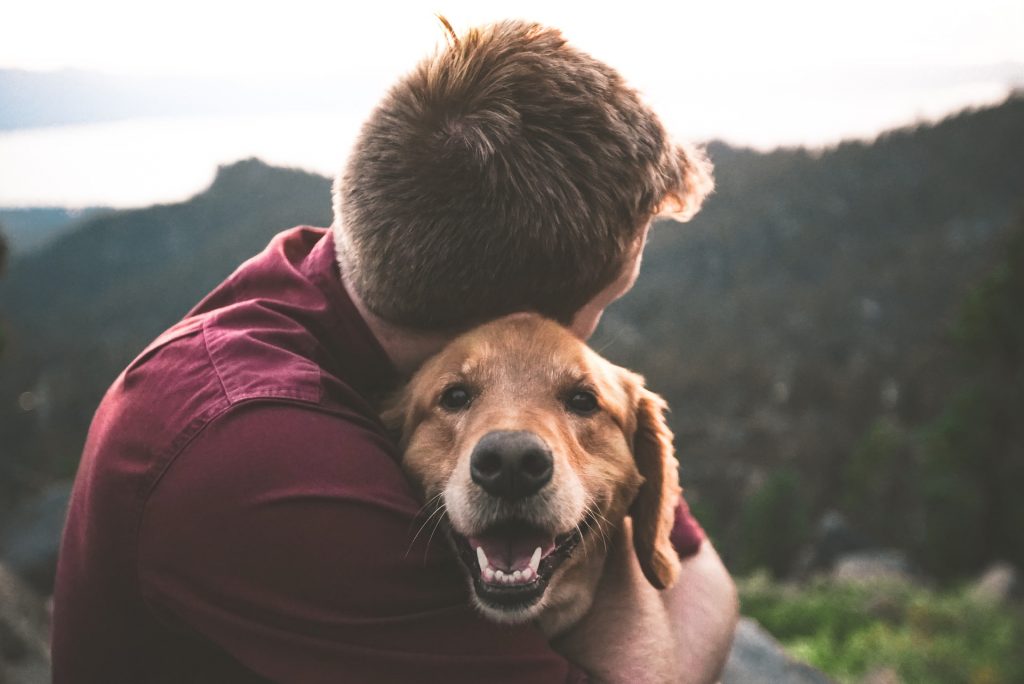If you ask anyone who has recently lost a pet how they’re feeling since the loss, they’ll most likely tell you their heart hurts in ways they never thought possible.
I’ve heard people say they have lost family members, co-workers, friends, and while they hurt deeply and grieved the losses, there’s something about the loss felt when you lose a pet that lingers long after they’re gone. The emptiness hovers over people like a dark cloud. For some, the grieving process takes longer than for others.
Whether it is due to an unexpected death, a run-away pet that never comes home, a break-up, retiring from a job you love, or losing your job before you’re ready, whatever the loss you are suffering through, grief usually dominates emotions for a while. Gradually, there will be a shift into a mourning period. Mourning the loss of your pet is still very difficult. However, it is the next step on the road to acceptance.
During the initial state of grief, feelings mirror shock, disbelief, and denial. It’s as if the entire world around you slows down. You feel like you are walking through mud. Some people experience tunnel vision. Their ability to process information becomes dull. People tend to feel alienated and alone during this period.
Memorial gatherings for humans we’ve lost often serve as support for people. Having a house full of family and friends is invaluable in the early hours after a loss. Burial rituals facilitate closure. It’s unfortunate that despite the loving place our pets fill in our lives, people are apt to not respond to pet loss with the same level of support for the pets’ survivors.
Friends, family, employers, at some point, expect grieving pet owners to get over it! Their empathy for your loss may be temporary. People will say; it was just a dog. It was only a cat. Time for you to move on!
Despite our love for pets, society has not recognized grieving a pet on the same level as grieving the death of a human loved one. Most folks are uncomfortable with grief in general so, when faced with someone experiencing prolonged grief over a pet, the uncomfortableness leads them to expect people to get over it already! A response like this may be affecting your ability to move forward. Recognize your feelings even if others are less than empathic.
I end sessions with my clients by telling them to be kind to themselves. If you are struggling with the death or loss of your pet, I’m telling you, be extra kind to yourself! Take a day for yourself. It may help to break through your pain. Play golf, treat yourself to a spa day, get a massage, play hooky from your daily routine. Go for a walk somewhere you’ve never been, head to the beach or out of town. Exercise, meditate, pray. Plan a memorial. Write in a journal about your grief. Compose a letter to your pet about how much they meant to you and how much you miss them. Visit a pet shelter and volunteer, donate items to homeless pets. Show yourself, love!
By being kind to yourself, especially on difficult days, your pain will begin to ease. Moving on from the loss is not about forgetting your pet but honoring the love they brought to your life. They loved you unconditionally. You need to love yourself the same way! Celebrate them! Be kind to you!
If you are having difficulty letting go, seek out professional counseling to assist you in processing your feelings. It’s okay. Pets fill our lives with unconditional love. Getting over their loss takes support, empathy, compassion, and time.
Wishing you all a peaceful heart,
RO
Next blog post topic:
How to help your other pets grieve!


